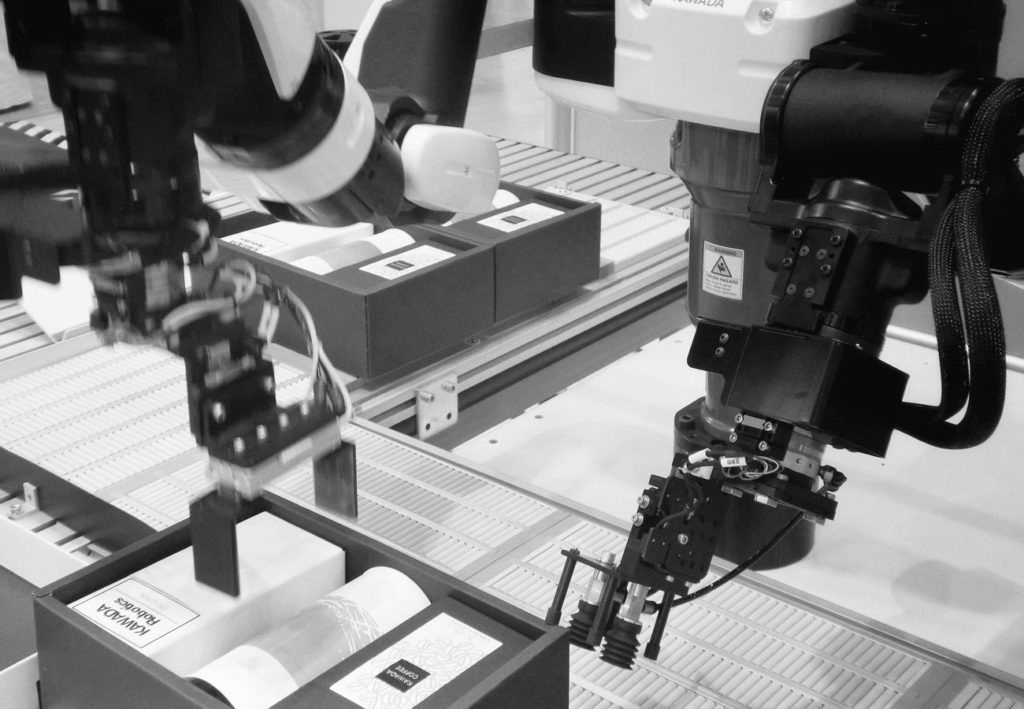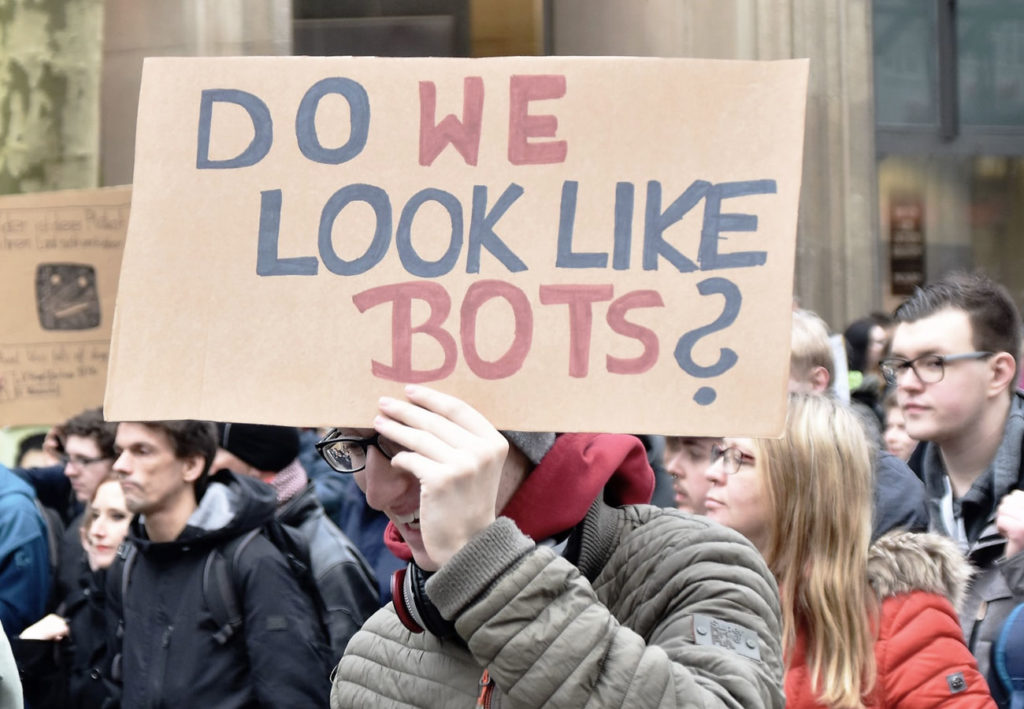Automation and guaranteed income: towards a brighter future for all?

On the same topic, read also: Does work have a future?
Historically, discussions around automation, i.e. the replacement of man by machine in production lines, and minimum income have been closely linked. Today, more and more technology giants, probably aware of the inexorable impact of their business models on the substitution of employees by robots, seem to be in favour of implementing a guaranteed basic income. An evolution that inevitably leads to a profound reflection on the meaning of work in our lives.
At all levels, the pervasiveness of technology in our daily lives has fundamentally affected the way we live and earn our living. The labour market is changing, and this transformation is leading us to rethink our conception of work. Do we practice a profession out of necessity? Out of duty? Out of habit? Or out of a need for accomplishment? More than ever, advances in robotics and artificial intelligence are bringing to the surface century-old concepts, such as the universal basic income. Are we at the dawn of a new era, where we could enjoy a monthly nest egg while robots struggle in our place?

The idea is at the heart of Silicon Valley’s thinking. From Mark Zuckerberg, CEO of Facebook, to Andrew Yang, candidate for the 2020 US presidential election, or Elon Musk, the main players in the field seem to be taking this new paradigm seriously. Gradually, the work of many is being shifted to machines, forcing them to move into lower-skilled, and therefore lower-paid, occupations. And for most of the players in the technology sector, it is now clear that automation, among other things, can be identified as the main cause of an exponential increase in this technological unemployment.
The march of robots
An official report submitted by the White House to the US Congress in February 2016 already estimated that an employee who received $40 per hour in 2010 had a 31% chance of losing his job to a machine in the short term. This percentage rose to 83% for a salary of $20 per hour. Figures that can undoubtedly be reviewed with additional pessimism today…
These worrying forecasts, confirmed by numerous studies, suggest significant consequences for the labour market. It’s clear that we could see a rapid acceleration in the impoverishment of those segments of the population already struggling financially. And, more generally, to an increase in economic inequality.

It therefore seems obvious to many observers that the option of a guaranteed minimum income is the best response to this emerging crisis. In an article in January 2015, Vice’s journalist Nathan Schneider explains that the idea is gaining ground not only in the Valley, but also in the various political spheres, both left and right.
In addition, the guaranteed income solution could usher in many other positive consequences. Some of its advocates argue that it could help solve employment-related problems (such as stress, a major health issue of modern times), but also promote the creation of new perspectives and opportunities to work in more efficient ways.
Pros and cons
For some experienced economists, such as Erik Olin Wright or James Meade, minimum income would also help develop a society in which increasingly large corporate incomes would be more equitably distributed among all segments of the population.

But inevitably, the idea also causes teeth grinding, and evokes a significant amount of scepticism. Some do not hesitate to focus on potential abuses. And their fears, on paper, seem reasonable. What guarantees can we offer that this basic income will not be maliciously exploited, will not attract laziness, or will not be used to consume drugs and alcohol, thus generating new societal problems? What is the point of setting up a minimum income system if it is ultimately to turn citizens into passive consumers?
Many concerns may be unfounded, however. In the 1970s, an experiment in Alaska concluded that, despite providing a basic income to a sample of citizens, the occupancy rate had not declined. On the contrary: the guinea pigs took advantage of this economic opportunity to convert to part-time jobs, leading to an explosion in the supply of services and a real increase in their quality.

Optimism is in order
Whatever our opinion, one thing is certain: the advancement of automation is inevitable. As the Italian entrepreneur Federico Pistono stated in Vice’s article mentioned above: “Name one thing you think robots can’t do, and I’ll give you a time frame in which they will be able to do it.“
It is not completely utopian to imagine that in the relatively near future we will all have become the beneficiaries of a guaranteed basic income, while machines manage the tasks that used to be our responsibility. Will this drastic change in the labour market, which will allow us to freely undertake more creative and fulfilling tasks, benefit society as a whole? Or will it lead to a significant drop in productivity? It is still difficult to provide a definitive answer. But the various experiments carried out in this field give us reason to be optimistic.
Weitere Beiträge im Blog
Zum Blog-
E-Commerce Trend #3 – Omnichannel. Worauf sollten Unternehmen 2023 achten? Unser Experte, Georg Kafka, im Interview.

-
E-Commerce Trend #2 – Social Media. Mehr als ein Trend? Unsere Digital Marketing Expertin, Verena Scheucher, im Interview.

-
Relationship marketing – noch im Trend?

-
E-Commerce Trend #1 – Künstliche Intelligenz. Was halten wir davon? Unser Experte im Interview.

